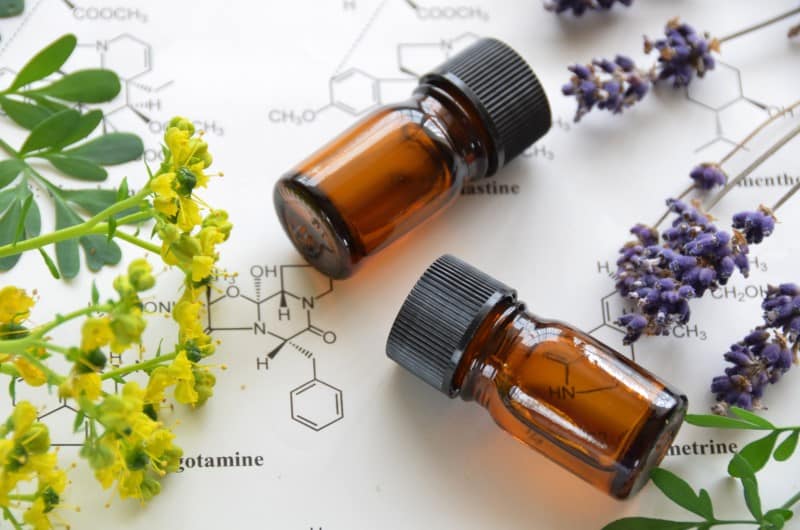Whether you are brand new to the essential oils world or have been doing blends and diffusing them for many years now, you are pretty familiar with the fact that there are a numerous amount of myths going on within the community. One person says this is true while the other individual says that is not true.
We keep researching until we eventually cannot take another minute of this confusion and go to sleep for the evening. That being said, what facts exactly are right and how can we differentiate between the two? It is not that easy to do!
Essential oils could partially freeze if given the right circumstances and composition, but meeting the right criteria for that to happen changes depending on the product, so a variety of factors come into play and meeting them or missing them dramatically changes which outcome comes into effect.
Oils are so unique in their own ways because they can change form due to what kind of temperature they are in. Water can do so as well, but the wonderful world of oils is what makes it more interesting! With that being said, we are wanting to go more on the nitty gritty and how exactly they act while being in a frozen state.

How Do Oils Freeze?
It is neat to see all of the different things that your oils can do to help you out personally, such as detoxing your body, help provide you with a good night’s sleep or even boosting your immune system, but what kind of form do they take when frozen? Many people are claiming that when an essential oil goes into the freezer, it automatically becomes completely solid as well as going bad, but this is not the case due to them becoming crystalized in the frozen stage.
Many of these oils do not get completely solid and you can still use a lot of them as some will drip down like normal while other oils will remain in a more crystalized state and some oil will remain in the bottle if you try to pour it out. A great example of this is peppermint oil due to it containing menthol, which is a cooling crystalized compound made up of a mint taste flavor to help with decongestion and painkillers.
Is It Safe To Freeze?
Due to the temperature remaining consistent throughout the day as well as the darkness that keeps the light out of your oils, at some point or the other, the oils will freeze in some form and you can go with the understanding that they are perfectly safe in the freezer. In fact, oils will remain better preserved as well from the never-changing temperatures that a freezer can manage as opposed to the changing temperatures surrounding our home throughout the year.
If you have a lot of essential oils and do not want to take up any room in your refrigerator freezer, it is completely understandable! There are small deep freezers you can buy for that very purpose if you so desire. Either that, or you can just get a big deep freezer for food and fill the smaller freezer with your oils! Whatever works best for you and your family.
Can You Store My Oils In The Refrigerator?
Some owners of essential oils declare that their lubricants in the refrigerator are life changing, so yes you can. In some cases, it makes the oils better due to the constant temperature throughout the year, just like if they were to remain in the freezer as stated above. As a matter of fact, this is one of the best ways you can store your oils in order to ensure the quality remains the same. Just make sure you take them 12 hours prior to using.
However, if you are like me and do not wish to put cold essential oils on you, especially the ones that contain menthol in them and are already wind up being really cold on your body, then you might not want to store them in a colder atmosphere, but instead, make sure you protect them from direct sunlight and store them in a cool, dry place.
How To Properly Store Essential Oils?
With that being said, many people are not quite sure how they should be storing their oils, especially if you are new to their usage. That is why we are here to talk to you about it today. Here are a few tips on what you can do:
- Make sure the lid is closed tightly in order to stop the oil from evaporating
- Having the lid tight also prevents any air, water or oxidation to get inside of the bottle
- If your oil is constantly exposed to the air, it can change the smell, consistency and properties of the oil
- Keep the plastic fitment on the bottle, because it helps the oils to leave one drop at a time as well as keeping the water and air out of it
- Make sure they are stored in a cool, dry place. There are many essential oil carrying cases you can get for while you are on-the-go
What Happens When Oils Are Heated?
Although we are talking about freezing the oils, it is important to remember heat as well. Heating your oils is not good for them, because the oils oxidize faster this way and the molecules start to break down. The components separate while confined in their sealed containers, so if you wind up opening it, the oils will not do the same type of work as if they were cooler. This is why you will see most essential oil bottles in either an amber, brown or cobalt blue color.
If you just so happen to receive your oil on a hot day or accidentally leaving them in the hot car, one of your automatic responses is that you want to open the entirety of the bottle up to make sure it still works, but this is NOT the wisest of choices. Make sure you allow your essential oils 24 hours to cool off first and foremost before doing anything else in order to help them not evaporate or overall get ruined.
Here are some pro tips about heat that you should know about:
- Having too much sun can deteriorate the oils
- Their chemical composition will change with too much sunlight and heat
- The oils are prone to evaporate more quickly, making them much less effective
- Too much sun or heat can overall impact the quality of the oil
Can You Add Essential Oils To Hot Water?
Yes you can add it to hot water, but since we are dealing with heat, the oils can evaporate faster, making them less effective. However, many people add essential oils to their baths, boil water with oils to help their house smell better, or use it for cleaning, such as laundry, cleaning surfaces (most use lemon) or natural air fresheners.
One quick thing to note is if you are to store any oils, it is important to use a glass bottle because they can easily deteriorate or melt the plastic that you put them in.
How Long Can You Store Essential Oils?
It all entirely depends on the type of oil and its manufacturer due to the amount of its variables. Many people say they will last anywhere between 1-2 years, but there are a numerous amount of oils that will last up to 8 years. I will go over a few (but not all) with you in each category. If you wish to see the full list, Healthline has a great article on it.
1-2 YEAR LIFESPAN
- Lemon
- Lime
- Grapefruit
- Orange
- Tangerine
- Mandarin
2-3 YEAR LIFESPAN
- Black pepper
- Coffee
- Balsam fir
- Catnip
- Chamomile
- Cypress
- Frankincense
- Tea tree
- Lemongrass
- Blue yarrow
- Nutmeg
3-4 YEAR LIFESPAN
- Balm mint bush
- Carrot seed
- Chamomile German
- Cinnamon bark
- Citronella
- Eucalyptus dives
- Fennel sweet
- Ginger root
- Lavender
- Rosalina
- Thyme
- Vanilla oleoresin
4-5 YEAR LIFESPAN
- Amyris
- Allspice
- Blue cypress
- Cedarwood
- Clove bud
- Palmarosa
- Cinnamon leaf
- Peppermint
- Ylang ylang
- Wintergreen
6-8 YEAR LIFESPAN
- Buddha wood
- Sandalwood Australian
- Sandalwood Indian
- Vetiver
Conclusion
One of the few ways to ensure your oils are being used properly and their lifespan lasts much longer is from freezing them or putting it into the refrigerator. Whether you decide to store it in a colder place or a darker and safe place, just know that you are doing a great job and we can get through our oil learning together!
Read more: Can You Drink Lavender Essential Oil
